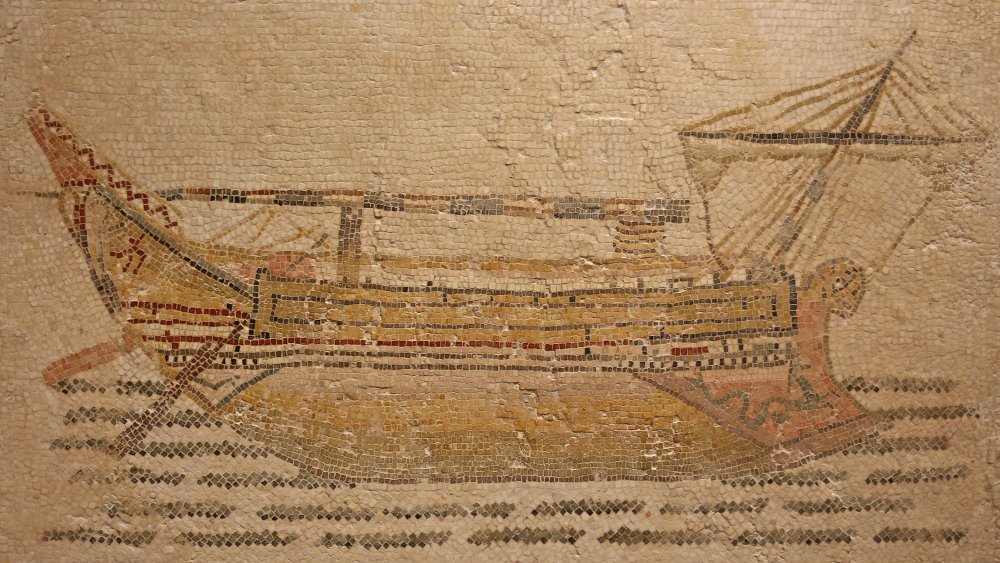The Real Reason Julius Caesar Was Kidnapped By Pirates
Get ready to buckle your swash, me hearties, to hear a tale of long ago from the High Seas, and there's a celebrity, and there's pirates! This one happened back around 75 BCE and it involves one of the few people from Ancient Rome that almost everybody can name: Julius Caesar. This was before Caesar was Caesar, of course — he was about 25 years old, according to Encyclopedia Britannica, and of noble(ish), though not wealthy(ish), birth.
As long as there have been ocean-going humans there have been ocean-going thieves: pirates, in it for the money more than the adventure. It was certainly true then in the area of the Eastern Mediterranean (yes, Pirates of the Mediterranean) around Cilicia. Slower-moving craft were especially vulnerable. The goods would be taken, along with the ship, and quite commonly, passengers and crew were sold into slavery. Except for the rich and/or important folk, who were held for ransom. A decent business model, all told.
Young Julius was on his way to Rhodes to study oratory when the ship upon which he sailed was taken by pirates. No slavery for him; no, the pirates decided to hold him for ransom. "How much?" he must have asked, and when they told him, he said, "try two-and-a-half times that" — over $600,000 in today's silver, says Mental Floss.
Slow-moving ships were in trouble
Julius's family was far from wealthy, and so he sent word to his friends to raise the money and settled in with the pirates to wait. Some 38 days passed, according to the historian Plutarch. During that time, in a plot twist that would do O. Henry proud, Julius gradually charmed his captors. "I'm napping, so shut up." "I'm making a speech, and if you don't understand it you're a dummy." "Here's my new poem. Isn't it great?" The pirates were somehow taken by his "simplicity and boyish mirth," according to the Ancient Origins website. Julius also told them that once he was released, he'd come back and execute all of them. Which no doubt the pirates found mirthful indeed.
Lo and behold, the ransom was raised and paid and Julius was released. And being a man of his word, Julius raised a private navy and returned to the pirates' island. He took back the ransom, he claimed their possessions, and took them to prison. Authorities didn't want them executed — better to sell them for slaves, what with turnabout being fair play and all — but Julius disagreed. He returned to the prison and had the lot of them crucified. In his defense, he cut their throats first. Mirthful indeed.

